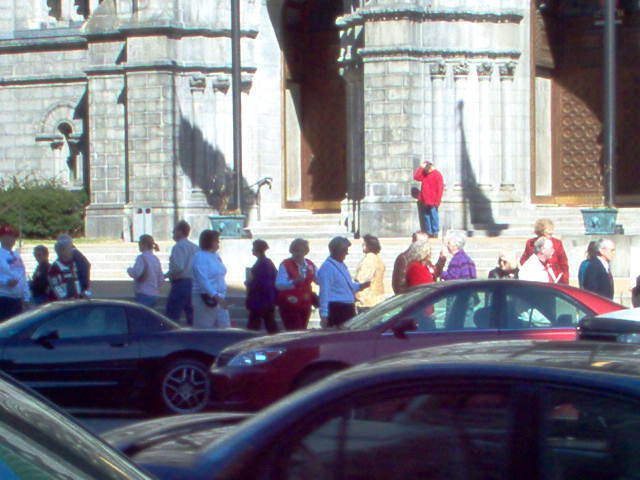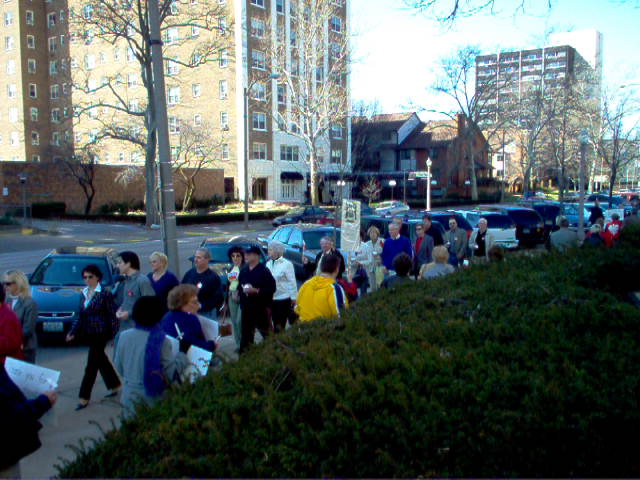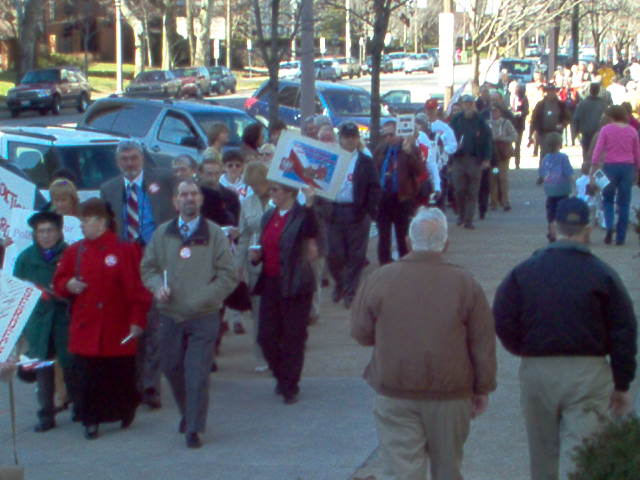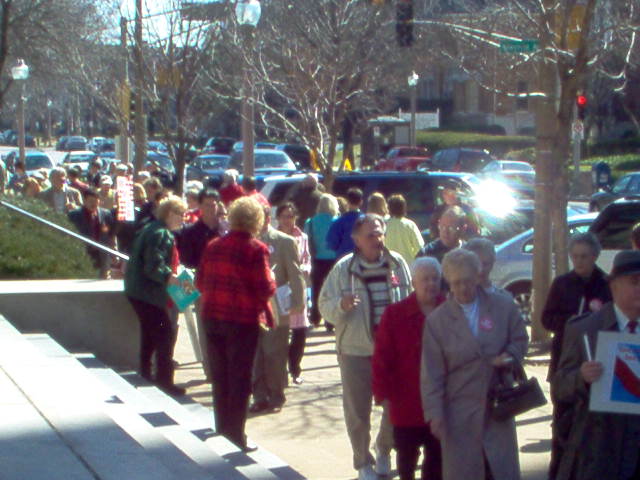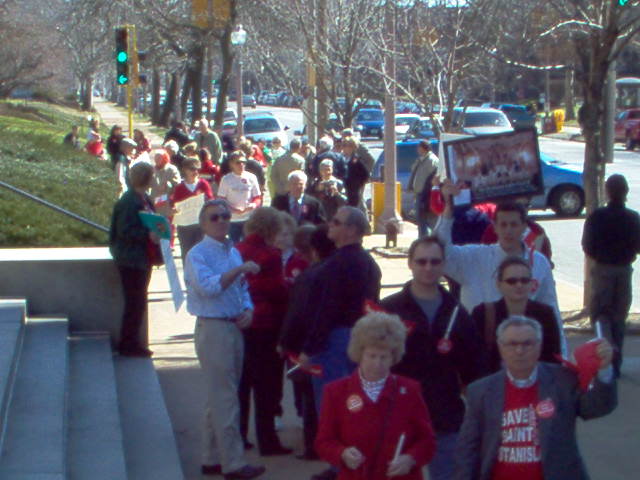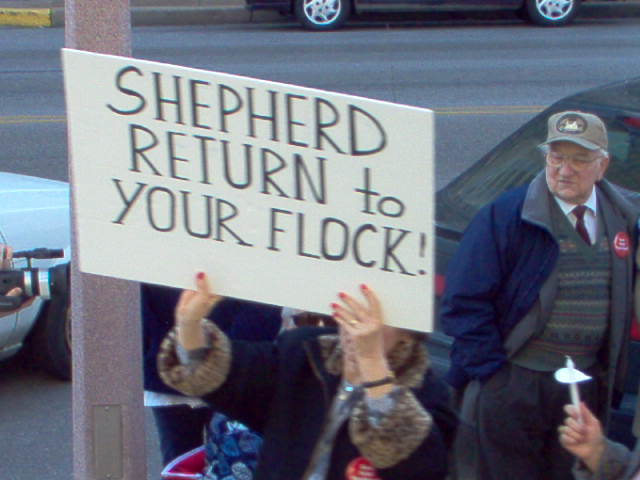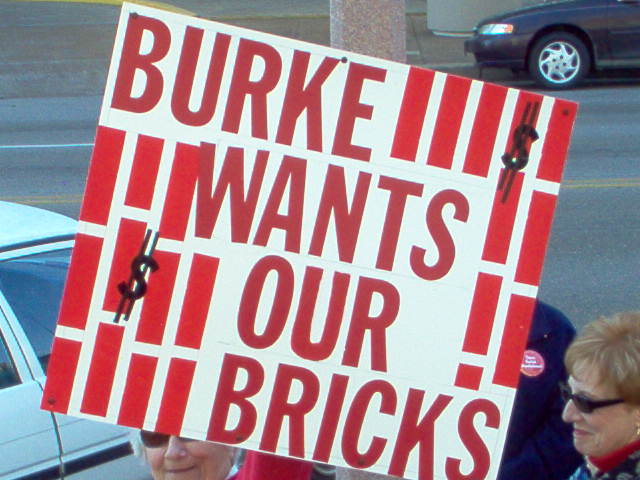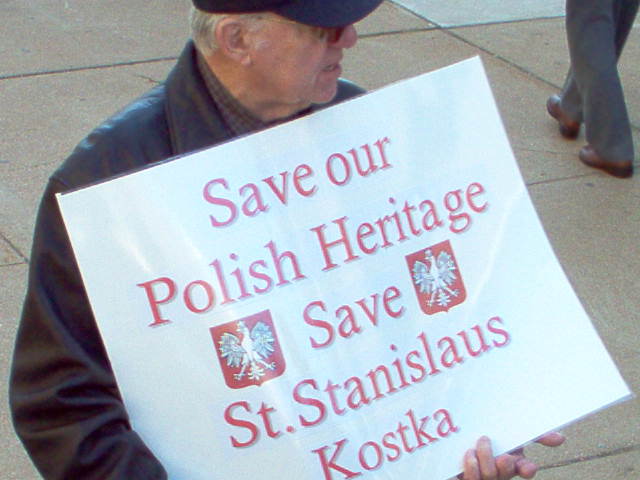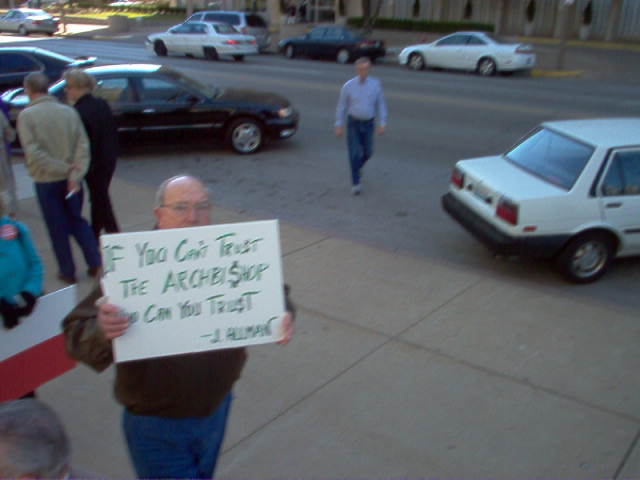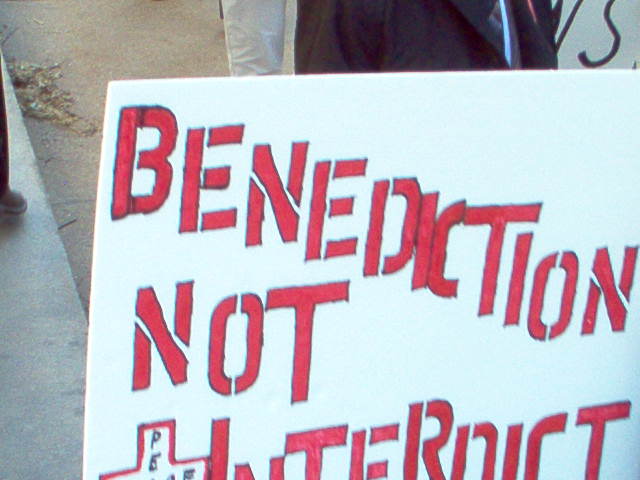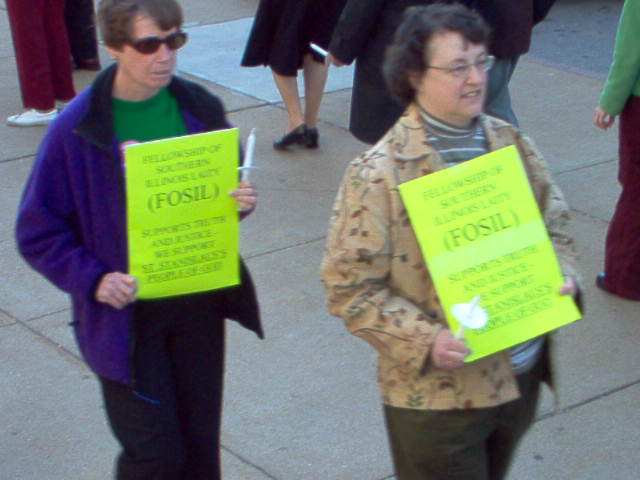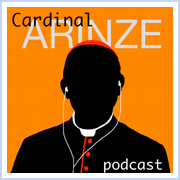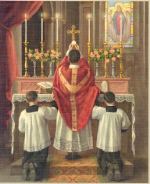John 9:1-41The Cure of the Man Born Blind[1] As He (Jesus) passed by, He saw a man blind from his birth. [2] And His disciples asked Him, "Rabbi, who sinned, this man or his parents, that he was born blind?" [3] Jesus answered, "It was not that this man sinned, or his parents, but that the works of God might be made manifest in him. [4] We must work the works of Him who sent Me, while it is day; night comes, when no one can work. [5] As long as I am in the world, I am the light of the world." [6] As He said this, He spat on the ground and made clay of the spittle and anointed the man's eyes with the clay, [7] saying to him, "Go, wash in the pool of Siloam" (which means Sent). So he went and washed and came back seeing. [8] The neighbors and those who had seen him before as a beggar, said, "Is not this the man who used to sit and beg?" [9] Some said, "It is he"; others said, "No, but he is like him." He said, "I am the man." [10] They said to him, "Then how were your eyes opened?" [11] The man called Jesus made clay and anointed my eyes and said to me, 'Go to Siloam and wash'; so I went and washed and received my sight." [12] They said to him, "Where is He?" He said, "I do not know."
[13] They brought to the Pharisees the man who had formerly been blind. [14] Now it was a Sabbath day when Jesus made the clay and opened his eyes. [15] The Pharisees again asked him how he had received his sight. And he said to them, "He put clay on my eyes, and I washed, and I see." [16] Some of the Pharisees said, "This Man is not from God, for He does not keep the Sabbath." But others said, "How can a man who is a sinner do such things?" There was a division among them. [17] So they again said to the blind man, "What do you say about Him, since He has opened your eyes?" He said, "He is a prophet."
[18] The Jews did not believe that he had been blind and had received his sight, until they called the parents of the man who had received his sight, [19] and asked them, "Is this your son, who you say was born blind? How then does he now see?" [20] His parents answered, "We know that this is our son, and that he was born blind; [21] but how he now sees we do not know, nor do we know who opened his eyes. Ask him; he is of age, he will speak for himself." [22] His parents said this because they feared the Jews, for the Jews had already agreed that if any one should confess Him to be Christ, he was to be put out of the synagogue. [23] Therefore his parents said, "He is of age, ask him."
The Blindness of the Jews[24] So for the second time they called the man who had been blind, and said to him, "Give God the praise; we know that this Man is a sinner." [25] He answered, "Whether He is a sinner, I do not know; one thing I know, that though I was blind, now I see." [26] They said to him, "What did He do to you? How did He open your eyes?" [27] He answered them, "Ihave told you already, and you would not listen. Why do you want to hearit again? Do you too want to become His disciples?" [28] And they reviled him, saying, "You are His disciple, but we are disciples of Moses. [29] We know that God has spoken to Moses, but as for this Man, we do not know where He comes from." [30] The man answered, "Why, this is a marvel! You do not know where He comes from, and yet He opened my eyes. [31] We know that God does not listen to sinners, but if any one is a worshipper of God and does His will, God listens to him. [32] Never since the world began has it been heard that any one opened the eyes of a man born blind. [33] If this Man were not from God, He could do nothing." [34] They answered him, "You were born in utter sin, and would you teach us?" And they cast him out.
[35] Jesus heard that they had cast him out and having found him, He said, "Do you believe in the Son of Man?" [36] He answered, "And who is He, Sir, that I may believe in Him?" [37] Jesus said to him, "You have seen Him, and it is He who speaks to you." [38] He said, "Lord, I believe"; and he worshipped Him. [39] Jesus said, "For judgment I came into this world, that those who do not see may see, and that those who see may become blind." [40] Some of the Pharisees near Him heard this, and they said to Him, "Are we also blind?" [41] Jesus said to them, "If you were blind, you would have no guilt; but now that you say, 'We see', your guilt remains."
********************************
Commentary:
2-3. The disciples' question echoes general Jewish views on the causes of illness and of misfortunes in general: they regarded them as punishment for personal sins (cf. Job 4:7-8; 2 Maccabees 7:18), or as the sins of parents being visited on their children (cf. Tobit 3:3).
We know through Revelation (cf. Genesis 3:16-19; Romans 5:12; etc.) that the origin of all the misfortunes which afflict mankind is sin--Original Sin and later personal sin. However, this does not mean that each misfortune or illness has its immediate cause in a personal sin, as if God inflicted or allowed evils to happen in direct proportion to every sin committed. Suffering, which is so often a factor in the life of the just man, can be a resource God sends him to cleanse him of his imperfections, to exercise him in virtue and to unite him to the sufferings of Christ the Redeemer, who although He was innocent, bore in Himself the punishments our sins merited (cf. Isaiah 53:4; 1 Peter 2:24; 1 John 3:5). For example, our Lady and St. Joseph and all the Saints have experienced intense suffering, thereby sharing in the redemptive suffering of Christ.
4-5. The "day" refers to Jesus' life on earth. Hence the urgency with which He approaches the task of doing the will of the Father until He reaches His death, which He compares with "night". This "night" can also be understood as referring to the end of the world; in this passage it means that the Redemption of men brought about by Christ needs to be continued by the Church throughout the centuries, and also that Christians should strive to spread the Kingdom of God.
"Time is precious, time passes, time is a phase of experiment with regard to our decisive and definitive fate. Our future and eternal destiny depends on the proof we give of faithfulness to our duties. Time is a gift from God; it is a question posed by God's love to our free and, it can be said, fateful answer. We must be sparing of time, in order to use it well, in the intense activity of our life of work, love and suffering.Idleness or boredom have no place in the life of a Christian! Rest, yes,when necessary (cf. Mark 6:31), but always with a view to vigilance, which only on the last day will open to a light on which the sun will never set" ([Pope] Paul VI, "Homily", 1 January 1976).
Jesus proclaims that He is the Light of the world because His life among men has given us the ultimate meaning of the world, of the life of every man and every woman, and of mankind as a whole. Without Jesus all creation is in darkness, it does not understand itself, it does not know where it is going. "Only in the mystery of the Incarnate Word does the mystery of man take on light. [...] Through Christ and in Christ, the riddles of sorrow and death grow meaningful; apart from His Gospel they overwhelm us" (Vatican II, "Gaudium Et Spes", 22). Jesus warns us--as He will do more clearly in John 12:35-36--of the need to let ourselves be enlightened by the Light, which is He Himself (cf. John 1:9-12).
6-7. This cure is done in two stages-Jesus' action on the eyes of the blind man, and the man being told to go and wash in the pool of Siloam. Our Lord also used saliva to cure a man who was deaf and dumb (cf. Mark 7:33) and another blind man (cf. Mark 8:23). The pool of Siloam was a reservoir built by King Hezekiah in the seventh century B.C., to supply Jerusalem with water (cf. Kings 20:20; 2 Chronicles 32:30); the prophets regarded these waters as a sign of divine favor (cf. Isaiah 8:6; 22:11). St. John, using the broader etymology of the word Siloam, applies it to Jesus who is the "One sent" by the Father. Our Lord works through the medium of matter to produce effects which exceed anything matter can do. Something similar will occur with the Sacraments: through His word He will confer on material media the power of spiritually regenerating man.
Our Lord's instruction to the blind man is reminiscent of the miracle of Naaman, the Syrian general who was cured of leprosy when, on the instruction of the prophet Elisha, he washed seven times in the waters of the Jordan (cf. 2 Kings 5:1ff). Naaman had hesitated before obeying; whereas the blind man obeys promptly without asking questions or raising objections.
"What an example of firm faith the blind man gives us! A living, operative faith. Do you behave like this when God commands, when so often you cannot see, when your soul is worried and the light is gone? What power could the water possibly contain that when the blind man's eyes were moistened with it they were cured? Surely some mysterious eye salve, or a precious medicine made up in the laboratory of some wise alchemist, would have done better? But the man believed; he acted upon the command of God, and he returned with eyes full of light" ([St] J. Escriva, "Friends of God", 193).
8-34. After recounting the miracle, the Evangelist reports the doubts of the man's friends and neighbors (verses 8-12) and inquiry made by the Pharisees: they question the man (verses 13-17), his parents (verses 18-23), and then the man again, whom they end up condemning and expelling from their presence (verses 24-34). This passage is so full of detail that it looks like an eyewitness account.
The Fathers and Doctors of the Church have seen this miracle as symbolizing the Sacrament of Baptism in which, through the medium of water, the soul is cleansed and receives the light of faith: "He sent theman to the pool called the pool of Siloam, to be cleansed and to be enlightened, that is, to be baptized and receive in Baptism full enlightenment" (St. Thomas Aquinas, "Commentary on St. John, in loc.").
This episode also reflects the different attitudes of people to our Lord and His miracles. The blind man, a straightforward person, believes in Jesus as envoy, prophet (verses 17, 33) and Son of God (verses 17, 33, 38); whereas the Pharisees persist in not wanting to see or believe, despite the clear evidence before them (verses 24-34).
In this miracle Jesus once again reveals Himself as the light of the world. This bears out the statement in the prologue: "The true light that enlightens every man was coming into the world" (1-9). Not only does He give light to the eyes of the blind man: He enlightens his soul, leading him to make an act of faith in His divinity (verse 38). At the same time we can see the obvious drama of those whose blindness darkens their minds, as our Lord said in His dialogue with Nicodemus: "The light has come into the world, and men loved darkness rather than light, because their deeds were evil" (John 3:19).
14-16. The Pharisees bring up the same accusation as they did when the paralyzed man was cured beside the pool (John 5:10) and as on other occasions Jesus has broken the Law because He cures the sick on the Sabbath (cf. Luke 13:16; 14:5, etc.). Christ had often taught that observance of the law of Sabbath rest (cf. Exodus 20:8, 11; 21:13; Deuteronomy 5:14) was compatible with the duty to do good (cf. Matthew 12:3-8; Mark 2:28; Luke 6:5). Charity, the good of others, takes precedence over all the other commandments (cf. note on Matthew 12:3-8). If rules are given precedence in a blind sort of way over the inescapable obligations of justice and charity, the result is fanaticism, which always goes against the Gospel and even against right reason--as happens in this instance with the Pharisees. Their minds are so closed that they do not want to see God's hand in something which simply could not be done without divine power. The dilemma they pose themselves--is He a man of God, as His miracles imply; or a sinner, because He does not keep the Sabbath (cf. Mark 3:23-30)?--can only arise in people whose outlook is that of religious fanatics. Their mistaken interpretation of how certain precepts should be kept leads them to forget the essence of the Law--love of God and love of neighbor.
To avoid accepting Jesus' divinity, the Pharisees reject the only possible correct interpretation of the miracle; whereas the blind man--like all unprejudiced people open to the truth--finds solid grounds in the miracle for confessing that Christ works through the power of God (John 9:33): "He supported and confirmed His preaching by miracles to arouse faith of His hearers and give them assurance, but not to coerce them" (Vatican II, "Dignitatis Humanae", 11).
24. "Give God the praise": a solemn declaration, like an oath, exhorting a person to tell the truth. But the Pharisees are not looking for the truth: they want to intimidate the man to get him to withdraw his statement. They try to pressurize him by warning him: "We know this Man is a sinner". St. Augustine comments: "What do they mean, Give God the praise? They mean, deny what you have received. Clearly, this is not to give God the praise, but rather to blaspheme against God" ("In Ioann. Evang.", 44, 11).
25-34. This interrogation shows that the miracle was so patent that not even His enemies could deny it. Our Lord worked many miracles during His public ministry, showing that He had complete power over everything, in other words that He was divine.
Rationalism, basing itself on an erroneous philosophical principle, refuses to accept that God can intervene in a supernatural way in this world; it therefore denies the possibility of miracles: but the Church has always taught that miracles do happen and that they serve a purpose: "If any one shall say that miracles are impossible, and therefore all the accounts regarding them, even those contained in Holy Scripture, are to be dismissed as fabulous or mythical; or that miracles can never be knownwith certainty, and that the divine origin of Christianity cannot be proved by them--let him be "anathema" (Vatican I, "Dei Filius", Chapter 3, and Canon 4).
29. Everyone saw the miracle, but the Pharisees are so stubborn that they will not accept the significance of the event, not even after questioning the man himself and his parents. "The sin of the Pharisees did not consist in not seeing God in Christ, but in voluntarily shutting themselves up within themselves, in not letting Jesus, who is the light, open their eyes" ([St] J. Escriva, "Christ Is Passing By", 71).
As this episode proceeds, the faith of the man himself deepens. He begins by recognizing Jesus as a prophet (verse 17) and he ends up acknowledging His divinity (verse 35); whereas over the same course of events the authorities become more and more obstinate--moving from doubt (verse 16), through the blasphemous assertion that Jesus is a sinner, to eventually expelling the beggar (verse 34)--a useful warning about the danger of pride which can blind one to the obvious.
34. After the Babylonian exile (sixth century B.C.), a Jewish custom developed of expelling from the synagogue those who had committed certain crimes. This took two forms--temporary expulsion for thirty days as a disciplinary measure, and permanent expulsion, which later was often imposed on Jews who became Christians. What is being referred to here is probably permanent expulsion, which was what was planned (verse 22) and which is noted elsewhere in the Gospels (cf. 12:42; 16:2; Luke 6:22).
35-38. This does not seem to have been an accidental meeting. ThePharisees have cast the man out of the synagogue; our Lord not only receives him but helps him make an act of faith in His divinity: "Now with the face of his heart washed and with his conscience cleansed, he acknowledges Him to be not only the Son of Man but Son of God" (St. Augustine, "In Ioann. Evang.", 44, 15). This dialogue reminds us of Jesus' conversation with the Samaritan woman (cf. John 4:26).
39. This judgment which our Lord pronounces follows on the act of faith of the man who has been cured, and the persistent obstinacy of the Pharisees. He has not come to condemn the world but to save it (cf. John 3:17), but His presence among us already involves a judgment, because each of us has to take a stand on whether to reject or accept Jesus. Christ's coming implies the fall of some and the salvation of others (cf. Luke 2:34). In this sense, we will fall into one of two categories (cf. John 3:18-21; 12:47-48): on the one hand, the humble of heart (cf. Matthew 11:25), who recognize their failings and who go to Jesus in search of forgiveness (these will receive the light He is speaking of); on the other hand, those who are satisfied with themselves and think that they do not need Christ or His word (they say they see but they are blind). Thus we ourselves decide our ultimate fate, depending on whether we accept or reject Jesus.
40-41. Jesus' words sting the Pharisees, who are always looking to catch Him out in something He says. They realize that He is referring to them and they ask Him, "Are we also blind?" Jesus' answer is quite clear: they can see but they do not want to: therefore they are unworthy. "If you realized you were blind, if you admitted you were blind and ran to the physician, you would have no sin, for I have come to take away sin; but because you say that you can see, you remain in your blindness" (St. Augustine, "In Ioann. Evang.", 45, 17).
****************************
Source: "The Navarre Bible: Text and Commentaries". Biblical texttaken from the Revised Standard Version and New Vulgate. Commentariesmade by members of the Faculty of Theology of the University ofNavarre, Spain. Published by Four Courts Press, Kill Lane, Blackrock,Co. Dublin, Ireland.
Reprinted with permission from Four Courts Press and Scepter Publishers, the U.S. publisher.
